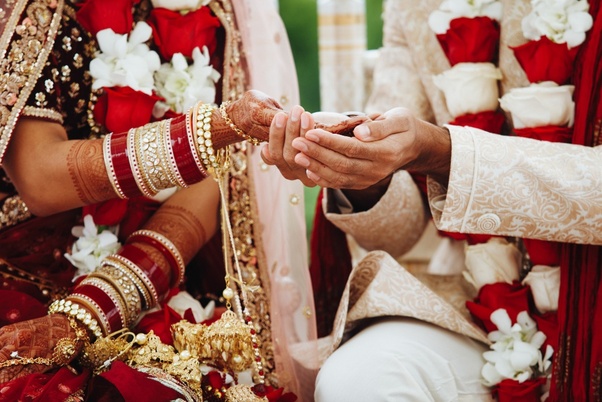Astrology, the ancient practice that studies the positions and movements of celestial bodies to make predictions about human affairs, has long been intertwined with the concept of marriage. Many individuals turn to astrology to gain insights into their potential life partners, compatibility and the overall trajectory of their marital journey. While astrology has its roots in various cultural and historical contexts, the question of its accuracy in predicting marriage outcomes remains a subject of debate. In this exploration, we delve into the intricacies of astrological compatibility, its historical significance, and the contemporary perspective on its accuracy in the realm of marriage.
1. Historical Context of Astrology in Marriage:
Astrology has been an integral part of diverse cultures throughout history, playing a crucial role in decision-making processes, including marriage prediction. Ancient civilizations, such as the Greeks, Egyptians, and Chinese, developed complex astrological systems to interpret the influence of celestial bodies on human life. The idea that the positions of planets and stars at the time of one’s birth could impact personality traits and life events led to the creation of astrological charts, including those dedicated to assessing compatibility between potential partners.
2. Astrological Compatibility:
One of the central tenets of astrological beliefs related to marriage is the concept of compatibility. Astrologers analyze the birth charts of individuals, considering the positions of the sun, moon, planets, and other celestial bodies at the time of birth. The zodiac signs, ruling planets, and astrological houses are then examined to determine the compatibility between two individuals. For example, individuals born under certain signs are believed to be more compatible with specific signs, creating a celestial roadmap for potential romantic partnerships.
However, the accuracy of astrological compatibility remains a contentious issue. Critics argue that the broad generalizations made by astrologers can apply to almost anyone, creating a self-fulfilling prophecy where individuals perceive compatibility because they expect it based on astrological predictions. On the other hand, proponents of astrology maintain that the intricacies of individual birth charts provide a unique and personalized insight into the dynamics of a relationship.
3. Scientific Skepticism:
From a scientific perspective, astrology faces substantial skepticism. The scientific method relies on empirical evidence, and studies attempting to validate astrological claims have often produced inconclusive results. Critics argue that the gravitational forces exerted by distant celestial bodies on individuals at the time of their birth are negligible compared to the forces exerted by closer objects, such as the Earth and the Moon. As a result, the scientific community largely dismisses the idea that celestial configurations at birth can significantly influence personality or compatibility.
4. Contemporary Perspectives on Astrology in Marriage:
In the contemporary era, astrology’s role in marriage prediction has evolved, influenced by a blend of tradition and modernity. While some individuals still adhere to astrological compatibility as a guiding factor in choosing a life partner, many approach it with a more casual and open-minded attitude. Online platforms and apps that offer astrological matchmaking have gained popularity, providing users with personalized insights and compatibility assessments based on their birth charts.
5. The Rise of Astrological Dating Apps:
The digital age has witnessed the emergence of astrology-focused dating apps that use advanced algorithms to analyze birth charts and match individuals based on astrological compatibility. These apps claim to enhance the accuracy of matchmaking by incorporating astrological insights into their algorithms. Users are provided with compatibility scores and detailed analyses of their astrological profiles, offering a unique twist to modern dating.
However, the efficacy of these apps remains a subject of debate. While some users report positive experiences and attribute the success of their relationships to astrological compatibility, others view it as a fun and entertaining aspect of the dating process rather than a serious determinant of relationship outcomes.
6. Personal Beliefs and Cultural Significance:
The accuracy of astrology in marriage prediction is often intertwined with personal beliefs and cultural significance. In cultures where astrology has deep historical roots, individuals may place greater emphasis on astrological compatibility when considering potential life partners. The cultural backdrop plays a crucial role in shaping perceptions and expectations related to marriage, influencing the extent to which astrology is considered a reliable guide.
Conclusion:
The accuracy of astrology in marriage prediction remains a subjective and complex matter. While astrology has deep historical roots and continues to be a significant aspect of various cultures, its scientific validity is a point of contention. The personalized insights provided by astrological charts and the rise of astrological dating apps add layers of complexity to the discussion.
Akashvaani is a top astrology that, offers insights into various aspects of life, including relationships, pregnancy, career, kundli making and matching. However, its predictive capabilities remain a subject of debate.
Ultimately, whether one relies on astrology as a guiding force in marriage or views it as a source of entertainment, the celestial connection remains a fascinating aspect of the human experience. As individuals navigate the intricate web of relationships, the stars above continue to spark curiosity and contemplation about the mysteries of love and compatibility.






